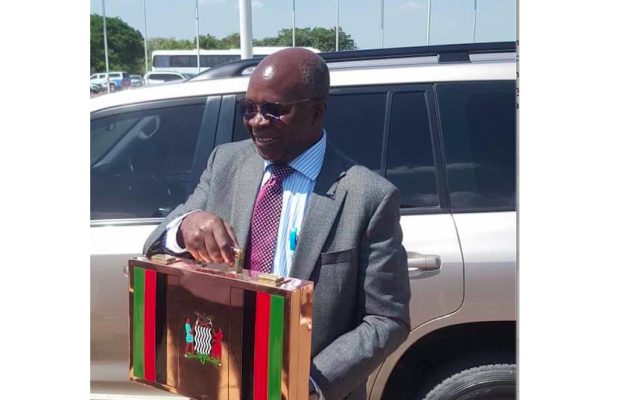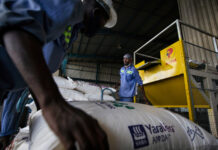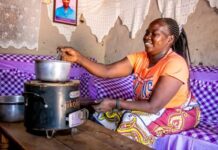Zambia unveiled a K167 billion (US$11.2 billion) Friday, poised to jump-start the economy ravaged by climate change, debt and COVID-19 with focus to maximise benefits from the agriculture sector in the next fiscal year.
Dubbed: “Stimulating Economic Growth for improved livelihoods” economic growth in 2023 is anchored on attaining a real Gross Domestic Product growth rate of at least 4.0%, reduce inflation to within the target band of 6-8% by the close of the year and maintain a minimum of four months of import cover.
Finance Minister Situmbeko Musokotwane told lawmakers in his address that the Government was desirous to revitalise the economy using cross-cutting revenue measures and support towards rebuilding the agriculture sector whose growth has been dwarfed by various fundamentals, climate change included.
In the execution of the revenue and expenditure, the finance minister proposes to, among other initiatives, seek to spend K167.3 billion, representing 31.4%.
To support this expenditure, K111.6 billion US$7billion) representing 21% of GDP will be raised through domestic revenue; K1.7 billion (US$1.1billion) or 0.3 percent of GDP as grants from Cooperating Partners; and K54.0 billion (US$3.3 billion) or 10.2 percent of GDP as financing.
Accounting for amortisation of K13.1 billion (S$8.1 billion), representing 2.5 percent of GDP, financing translates into a fiscal deficit of K40.9 billion or 7.7 percent of GDP.
To ramp up production and growth of the agriculture sector, minister Musokotwane envisions spending K11.2 billion (US$2.5 billion) on various interventions in the agriculture, fisheries and livestock sub-sectors in line with the Comprehensive Agriculture Support Programme (CAP).
This to provide the farming inputs, enhance extension services, improve market access, financing to farmers and develop irrigation systems.
An allocation of K9.1 billion (US$6 billion) is earmarked for farming inputs, K789.5 million (US$5 million) for extension services including the procurement of motor bikes, extension kits, electronic tablets and rehabilitation of camp houses across the country.
A staggering K426.6 million (US$7.1 million) will be utilised on developing farm blocks and irrigation to reduce dependence on rain-fed agriculture and support agricultural activities all year round amid unpredictable weather patterns within and in the Southern African region.
The farm block development will help bolster food exports within and beyond the region where neighbors are in dire need of food from Zambia after successful food production seasons.
“From the farm blocks that we shall establish in 2023 and beyond, jobs and business opportunities will arise as we produce food for neighbouring countries, the Gulf, China and the rest of the world.
“As a region with all the correct agronomical conditions, the world is offering us money if we grow food for them. Our farm blocks and farming in general will be the answer to this challenge and thereby create jobs for engineers, agronomists, accountants, mechanics and many others.” envisions minister Musokotwane
A total K52.7 million (US$ 3.3 million) is earmarked for the recruitment of at least 500 extension officers in the livestock, fisheries and agriculture sub-sectors. A total of K274.4 million (US$17 million) on animal disease control.
The allocation will facilitate the procurement of animal vaccines as well as the construction of an animal vaccine plant at Balmoral in Chilanga District. Noting the importance of the agriculture sector in poverty reduction, there is a need to bolster productivity of various crops hence the need to waive various impediments.
” I propose to remove customs duty on: (a) Biological control agents used in agriculture; (b) Crop growing media (peat moss) used in the production of vegetable seedlings; and Selected tree crop seedlings.”
To encourage further investment in the sector through Value Added Tax (VAT) the minister has provided various incentives by Zero rating the supply of milk cans and milking machines to encourage the growth of the dairy sub-sector. The plan is to promote the utilisation of appropriate milk handling equipment.
Despite the vast contribution of cigarettes to the economy, the budget seeks to realise revenue through production and sale by increasing specific excise duty on cigarettes, Increase specific excise duty on unmanufactured tobacco, tobacco refuse, and the smoking of tobacco whether or not containing tobacco substitutes. The budget introduces further excise duty on electronic cigarettes.
To attract investment into corn starch processing, the budget has been tailored to introduce income tax concessions for 15 years on income generated from local sales of corn starch by agro[1]processing businesses operating in Multi-Facility Economic Zones, Industrial Parks or rural areas.
There will be Zero percent corporate income tax for charge years 2023 to 2033; and 50% relief on corporate income tax for charge years 2034 to 2036, a 25% relief on corporate income tax for charge years 2037 to 2038; and Zero percent withholding tax on dividends declared on profits for charge years 2023 to 2033. 249 to help promote the industry.
“Currently there is no domestic production of corn starch and, therefore, the revenue loss will be minimal. In the manufacturing sector, there are plans to promote outgrower schemes, foster forward and backward linkages, value addition and job creation”
The Government has since suspended excise duty on locally produced clear beer from cassava to 5 percent from 10 percent./









